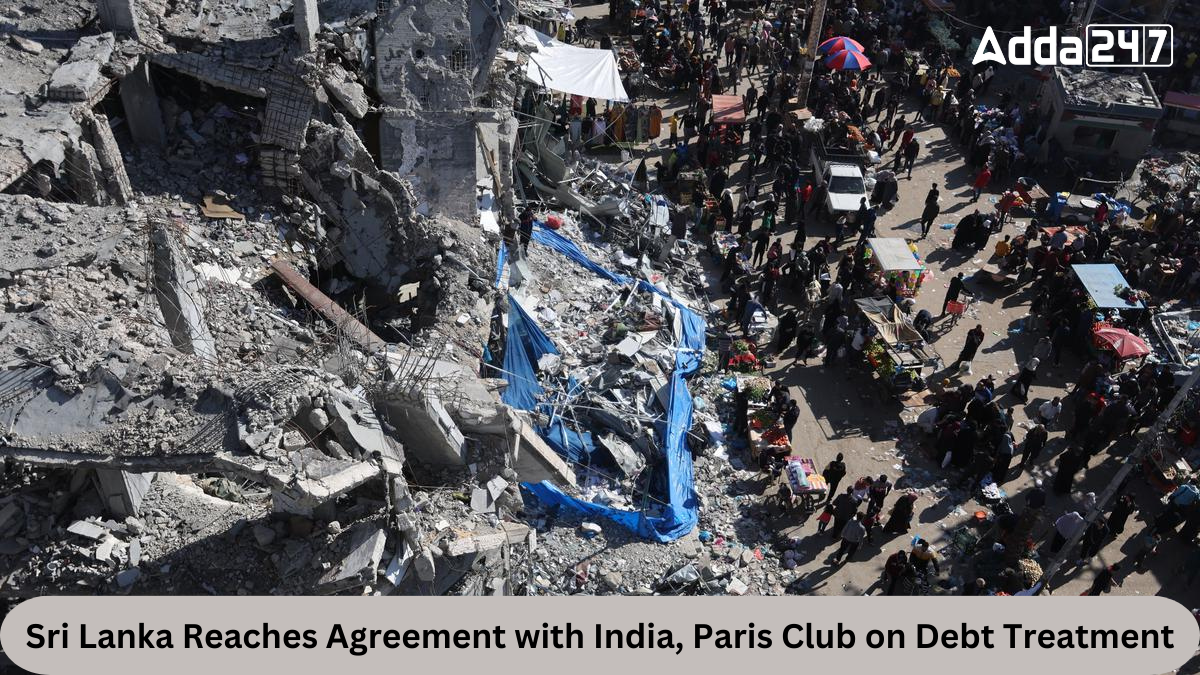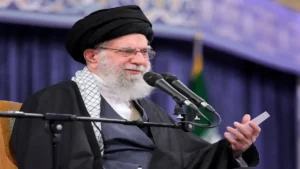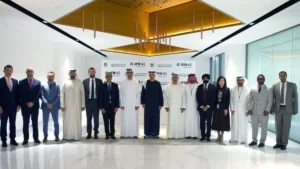Sri Lanka, in the throes of a severe economic crisis, has taken a significant step towards resolving its debt issues. An “agreement in principle” has been reached with India and the Paris Club group of creditors, including Japan. This development is crucial for Sri Lanka as it paves the way for accessing the next tranche of the International Monetary Fund’s (IMF) nearly $3 billion recovery package.
Background
At the peak of last year’s economic crisis, Sri Lanka made the difficult decision to default on its nearly $51 billion foreign debt. Recognizing the need for a comprehensive restricting of loans to kickstart an economic recovery program supported by the IMF, major leaders formed the Official Creditor Committee (OCC) in May 2023. The OCC, co-chaired by India, Japan and France, has been in discussing with Sri Lankan authorities over the past few months to evaluate options for restricting Colombo’s outstanding debt.
Agreement in Principle with Paris Club
The Paris Club, in a statement, announced that the OCC and Sri Lanka have agreed on the main parameters of a debt treatment consistent with those of the Extended Fund Facility (EFF) arrangement between Sri Lanka and the IMF. While specific details were not disclosed, the OCC expressed readiness to formalize the agreement in the coming weeks through a Memorandum of Understanding with Sri Lanka.
Creditor Parity and Transparency
Japan and India, as major leaders to Sri Lanka, have consistently emphasized the importance of creditor parity and transparency. The OCC, in its statement, highlighted the expectation for “other bilateral creditors” to share information transparently, ensuring the evaluation of comparability of treatment regarding their own bilateral agreements. China, Sri Lanka’s largest bilateral creditor, has chosen not to participate in the OCC but attended meetings as an observer.
Role of China
China, while staying out of the OCC platform, has assured Sri Lanka of its cooperation in the debt restructuring process. Sri Lanka, in turn, has assured other creditors of China’s transport participation. However, specific details of the possible debt treatment plan are yet to be revealed.
Involvement of Private Creditors
The OCC has urged Sri Lanka to continue engaging with its private creditors, who hold the largest portion of the island’s foreign debt. A swift agreement with private creditors on terms at least as favorable as those offered by the OCC is deemed essential for the success of the overall debt restructuring plan.
IMF’s Critical Next Step
The International Monetary Fund, upon reaching a staff-level agreement with Sri Lanka on October 19, 2023, underscored the importance of securing an agreement with official creditors on a debt treatment plan consistent with the Fund’s targets. The next installment of the IMF package is contingent on achieving this critical next step.
Important Questions Related to Exams
Q1. What significant step has Sri Lanka taken to address its economic crisis?
Sol. Sri Lanka has reached an “agreement in principle” with India and the Paris Club on a debt treatment plan, crucial for accessing the next IMF tranche.
Q2. Why did Sri Lanka decide to default on its foreign debt last year?
Sol. Sri Lanka defaulted on its nearly $51 billion foreign debt due to the economic crisis, prompting the need for comprehensive loan restructuring.
Q3. Who co-chairs the Official Creditor Committee (OCC) formed to address Sri Lanka’s debt issues?
Sol. The OCC is co-chaired by India, Japan and France, major leaders involved in the restructuring discussions.




 Iran’s Supreme Leader Ayatollah Ali Kham...
Iran’s Supreme Leader Ayatollah Ali Kham...
 Which Country Officially Uses Two Differ...
Which Country Officially Uses Two Differ...
 UAE Launches World’s First Sovereign Fin...
UAE Launches World’s First Sovereign Fin...








